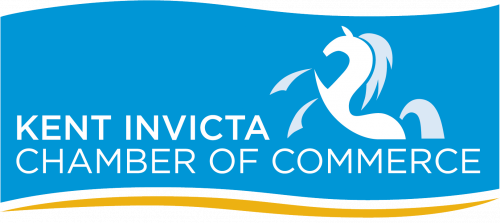Future-Proofing Your Marketing Strategy: Adapting To Cookie-Less Tracking
The digital marketing landscape is poised for a significant shift as third-party cookies, once a cornerstone of online tracking and personalisation, are set to be phased out this year. With rising privacy concerns and regulatory changes, marketers must adapt to new strategies to maintain effective targeting and personalisation. In this comprehensive guide, we’ll explore the implications of a cookie-less future and outline actionable steps to future-proof your marketing strategy.
Third-party cookies have been used extensively to track user behaviour across websites, enabling personalised advertising and data-driven marketing strategies. However, privacy concerns and regulations like the General Data Protection Regulation (GDPR) have led to increased scrutiny and the eventual phase-out of these cookies by major browsers like Google Chrome.
Why Are Third-Party Cookies Being Phased Out?
- Privacy Concerns: Consumers are increasingly aware of their online privacy and are demanding more control over their personal data. Third-party cookies, which track users without their explicit consent, have been a significant point of contention.
- Regulatory Changes: Laws and regulations are being implemented worldwide to protect consumer privacy. Compliance with these regulations necessitates a shift away from third-party cookies.
- Browser Policies: Major browsers such as Google Chrome, Safari, and Firefox are leading the charge by blocking or planning to block third-party cookies, pushing marketers to seek alternative solutions.
Implications for Marketers
The elimination of third-party cookies presents several challenges for marketers who have relied on them for targeted advertising and tracking. Key areas affected include:
- Ad Targeting: Without third-party cookies, the ability to deliver highly targeted ads based on user behaviour across multiple sites will be diminished.
- Measurement and Attribution: Tracking user journeys and attributing conversions to specific campaigns will become more complex.
- Personalisation: Creating personalised user experiences based on browsing history will require new methods of data collection and analysis.
How to Adapt to a Cookie-Less Future
1. Embrace First-Party Data
First-party data is collected directly from your audience through interactions on your website, apps, or other owned channels. This data is considered more reliable and privacy-compliant since it is collected with user consent.
Action Steps:
- Enhance Data Collection: Implement tools to gather first-party data through website interactions, email subscriptions, and customer surveys.
- Segment Your Audience: Use first-party data to create detailed audience segments for personalised marketing efforts.
- Invest in a robust CRM System: A robust Customer Relationship Management (CRM) system can help manage and analyse first-party data effectively.
2. Leverage Contextual Advertising
Contextual advertising targets users based on the content they are currently consuming, rather than their past behaviour. This method aligns ads with relevant content, increasing the likelihood of engagement without relying on cookies.
Action Steps:
- Identify Relevant Contexts: Determine the types of content your target audience engages with and place ads within those contexts.
- Use Contextual Targeting Tools: Platforms like Google AdSense and various programmatic ad services offer contextual targeting options.
- Monitor and Optimise: Continuously track the performance of contextual ads and optimise placements based on engagement metrics.
3. Utilise Privacy-First Tracking Solutions
New technologies and methodologies are emerging to address the limitations posed by the loss of third-party cookies. These solutions aim to balance effective tracking with enhanced privacy.
Action Steps:
- Explore Server-Side Tracking: Unlike client-side cookies, server-side tracking involves collecting data directly from the server, offering greater control and security.
- Implement Universal IDs: Solutions like Unified ID 2.0 provide an open-source framework for tracking that respects user privacy.
- Adopt Google’s Privacy Sandbox: Google is developing Privacy Sandbox technologies to enable targeted advertising while preserving user privacy.
4. Focus on Content Marketing and SEO
High-quality content remains a cornerstone of digital marketing. By creating valuable content that attracts and engages your audience, you can build organic traffic and reduce dependency on third-party data.
Action Steps:
- Invest in High-Quality Content: Develop informative and engaging content that addresses your audience’s needs and interests.
- Optimise for SEO: Ensure your content is optimised for search engines to improve organic reach and visibility.
- Engage with Your Audience: Use content to foster engagement through comments, shares, and discussions, collecting valuable first-party insights in the process.
5. Invest in Data Privacy and Compliance
As privacy regulations continue to evolve, staying compliant is crucial. Investing in data privacy measures not only ensures compliance but also builds trust with your audience.
Action Steps:
- Audit Your Data Practices: Regularly review how data is collected, stored, and used within your organization.
- Enhance Transparency: Clearly communicate your data collection practices to users and obtain explicit consent.
- Train Your Team: Ensure your marketing and data teams are up-to-date with the latest privacy regulations and best practices.
The phase-out of third-party cookies marks a significant shift in digital marketing, but it also presents an opportunity to innovate and improve data practices. By embracing first-party data, leveraging contextual advertising, and adopting privacy-first tracking solutions, businesses can continue to deliver personalised experiences while respecting user privacy.
Unsure about how to future-proof your marketing strategy for a cookie-less world? Contact Grouth today to discover how we can help you adapt and thrive in this new landscape. Visit our website to schedule a consultation and start transforming your marketing approach with cutting-edge solutions and expert guidance.
If you have any questions or need further assistance with your marketing strategy, feel free to reach out to us.


